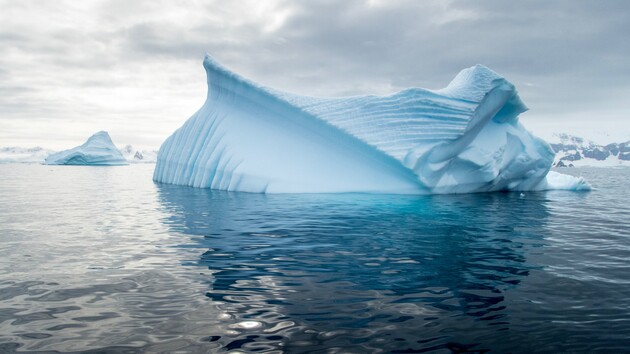Scientists used models developed for the Antarctic, which turned out to be unsuitable.

Scientists used a new model that showed that Greenland's glaciers are melting 100 times faster than previously thought. New modeling takes into account the unique interaction between ice and water in the island's fjords, reports Space.com.
The new mathematical model is based on observations of how ice is eaten away from the vertical surfaces at the ends of the Greenland glaciers. For this, models built for Antarctica were used, where glacier tongues float on top of sea water.
Read also: Kilimanjaro glaciers may disappear completely by 2050
Scientists have already assumed that the understanding of Arctic glaciers, based on observations in Antarctica, may not be ideal. But it is difficult to get to the ends of Greenland's glaciers, since they are located on the edges of fjords – long, narrow gulfs of water surrounded by rocks. Here, warm water cuts through the ice. According to scientists, this leads to serious consequences when pieces of ice the size of a building suddenly fall into the water, creating a tsunami.
In the new study, scientists led by Rebecca Jackson from Rutgers University used robotic boats to approach these dangerous ice cliffs and take measurements. These measurements showed that the models based on the Antarctic underestimate the extent of the melting of the Arctic glaciers. Yes, the LeConte glacier is disappearing 100 times faster than the models predicted.
The mixture of cold glacial meltwater with warmer seawater stimulates the circulation of the ocean near them and further into the sea. And this means that support can have far-reaching consequences. The melting of the Greenland ice sheet is also important for understanding sea level rise. The island contains enough water to raise the sea level by six meters.
The new model takes into account the latest data from scientific missions, as well as an understanding of how the steep, cliff-like surfaces of glaciers affect ice loss. And the data obtained as a result of modeling are consistent with Jackson's measurements – the glaciers are melting 100 times faster than expected. space satellites. As a result, they were able to document Greenland's weight loss due to melting ice.
See special topic: Pakistan asks UN countries for help in recovery after a $16 billion flood At least 1,700 people died last year due to climate change in Pakistan. Hot January: temperature records set in Europe In Warsaw, the temperature exceeded 18 degrees Celsius, and in Bilbao – 25. < /span> Svalbard's reindeer were able to adapt to climate change with the help of “Eskimo-like” grass Animals are changing their eating habits. At the COP27 summit, they agreed to create a climate change compensation fund for “vulnerable countries” – CNN However, the details of how the fund will function remain unclear. Scientists told about the island that heats up the fastest on the planet The average temperature here increases by 2.7 degrees Celsius in 10 years.



